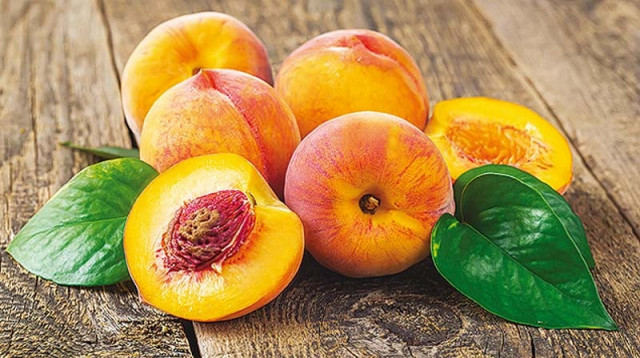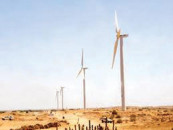Not so peachy for Pakistan's peach growers
Despite the fruit's popularity a host of issues prevents growers from tapping its full potential

PHOTO: FILE
Its popularity in those parts is best summed up by a well-known Pashto saying: "If the cost of your friendship is a peach, then I forsake your friendship."
But although peaches currently cater to a rather niche local market, experts and growers believe there is a huge market for the fruit beyond Pakistan, particularly in the Gulf countries. The only thing holding Pakistani peaches back from glory in the international market, according to them, is the lack of a proper export policy and government support.
'Peach-perfect' heartland
Peaches, in Pakistan, are predominantly cultivated in Khyber-Pakhtunkhwa and Balochistan, particularly the Peshawar, Quetta, Swat, Chitral, Malakand and Kalat districts. The fruit usually starts ripening in May and continues to do so until the first week of September.
Agriculture has potential to give boost to economy
The two most important varieties grown in the country are the clingstone and freestone – named based on the way the fruit's pit and flesh hold together – according to the Pakistan Research Council. In Peshawar, Swat's Early Grand and Florida King 6-A and 8-A are the most popular cultivars. In Balochistan, the Golden Early, Shah Pasand and Shireen are the most sought-after varieties.
In K-P, a total of 6,330 hectares are dedicated to growing the fruit. Between 2013 and 2014, the province alone produced a whopping 36,155 tonnes of peaches.
According to a report by the Crop Reporting Service of Khyber Pakhtunkhwa, Swat produced 5,280 tonnes of peaches in 2018-2019, whereas Peshawar produced 1,066 tonnes, Mardan 2,825 tonnes, Malakand 1,190 tonnes, Lower Dir 1,033 tonnes, Buner 3,105 tonnes and Upper Dir 1,917 tonnes. Total production from the tribal district stood at 3,374 tonnes.
Untapped potential
Fazli Rabi, an orchard owner and major peach distributor from Swat insisted on an even higher production figure for his home district.
"Every year, Swat alone produces 6,400 tonnes of peaches," he said, pointing out that 17 different varieties of peaches grow in the district.
"Not only is it one of the most favoured fruits in the region, the soil of Swat is ideal for peach production," he said. "If the government takes some solid steps to promote this fruit, I think it will greatly contribute to our economy.
Speaking to The Express Tribune, the principal researcher officer at the Mingora Agriculture Research Centre, Dr Abdul Rauf said that every year, about 300,000 to 500,000 peaches are produced by each farm.
"The fruit is gradually becoming the main source of income for the farmers of Swat. If the government establishes a well-equipped storage system for fruits like peaches in the district, they will be able to export these fruits to other countries and contribute a great deal to our national exchequer", Rauf added.
He added that every year, the Agriculture Research Centre in Mingora holds exhibitions for fruits like peaches and apples to promote the production of Swat.
"The exhibitions are not only attended by people from across the country but many foreigners also visit the yearly extravaganza and were appreciate it," he said.
Losing ground to climate change
Lack of policies and government attention are not the only hurdle Pakistan's peach growers face. Increasingly, climate change is posing another serious threat to the cultivation of the fruit.
"Peshawar and Swat have traditionally been the best part of Pakistan for peach cultivation," said K-P Agriculture Extension Programme Director-General Muhammad Naseem. "But recent changes in the environment of the region have reduced the production as compared to the past."
"Owing to rapid urbanisation and environmental changes, Peshawar has lost its capacity to produce huge quantities of the fruits like it used to in the past," Naseem added. He told The Express Tribune that the Agriculture Extension Programme is working with farmers and is arranging different training sessions to educate them on how to boost production and generate more income through the fruit.
No support post-harvest
Even with the ideal climate and environmental conditions, however, Pakistan peach potential would be far from tapped. According to the K-P Crop Reporting Service, various factors such as the lack of post-harvest infrastructures, shortage of packaging houses, cool-chains, and poor-quality packaging keep Pakistani growers from bringing in maximum economic benefit.
Chemical-treated mangoes cause for concern
The lack of certified fruit plants, limited processing facilities, the non-availability of soft loans, high cost of transportation and a dearth of collection points are some other serious issues that the peach industry faces.
"Peach farmers also face the non-availability of extension field services and extra-commissions, lack of irrigation water and distant markets along with crop diseases and pests," said Deputy Director of K-P Horticulture Dr Hafiz Farhad . "There is a lot of potential for peach exports but farmers are facing troubles in obtaining the International Organisation for Standardisation (ISO) certification for the international market."
"The government is now starting a programme for farmers to introduce certification facilities for quality assurance and the creation of market linkages for agriculture intervention in K-P," Farhad added. "The programme will cost Rs286.527 million and will be a part of the Public Sector Development Programme," he told The Express Tribune.


















COMMENTS
Comments are moderated and generally will be posted if they are on-topic and not abusive.
For more information, please see our Comments FAQ